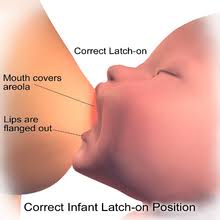Breastfeeding is a natural and essential part of nurturing newborns. It’s not only a means of providing nutrition but also a way to bond with your baby. For centuries, give suck has been the optimal choice for infant feeding, offering numerous health benefits for both the baby and the mother. However, many new mothers face challenges when starting their give suck journey. This guide provides an in-depth look at give suck, its benefits, common challenges, and tips to make the process smoother and more enjoyable.

What Is Breastfeeding?
give suck refers to feeding a baby directly from the mother’s breast. Breast milk contains all the essential nutrients, antibodies, and hormones needed for a baby’s healthy growth and development. The World Health Organization (WHO) and other health authorities recommend exclusive give suck for the first six months of a baby’s life, followed by continued mother fedding alongside complementary foods up to two years or beyond.
The Benefits of Breastfeeding
Breastfeeding offers a range of benefits for both the baby and the mother, making it an ideal choice for many families.
Benefits for the Baby
Complete Nutrition:
Breast milk is perfectly balanced with fats, proteins, vitamins, and minerals that are easily digested by newborns.
Strengthened Immune System:
Breast milk contains antibodies that protect babies from infections and illnesses such as ear infections, respiratory diseases, and diarrhea.
Lower Risk of Chronic Conditions:
Studies suggest that breastfed babies have a reduced risk of developing conditions like asthma, obesity, type 2 diabetes, and allergies later in life.
Cognitive Development:
There is evidence that give suck can promote brain development, leading to improved cognitive abilities and higher IQ levels as the child grows.
Bonding and Comfort:
Mother feding fosters a strong emotional bond between mother and child, providing comfort and security to the baby.
Benefits for the Mother
Promotes Postpartum Recovery:
Breastfeeding helps the uterus contract and return to its pre-pregnancy size, reducing postpartum bleeding.
Weight Loss:
Many mothers find that mother feding helps them shed postpartum weight more quickly as it burns extra calories.
Reduced Risk of Certain Diseases:
Women who breastfeed have a lower risk of developing breast cancer, ovarian cancer, type 2 diabetes, and heart disease.
Challenges of Breastfeeding
Despite its benefits, breastfeeding can come with several challenges, especially for first-time mothers. Understanding these obstacles and finding solutions can make the process smoother.
Common Challenges
Latching Problems:
One of the most common issues new mothers face is getting the baby to latch correctly. A poor latch can cause pain for the mother and prevent the baby from getting enough milk.
Sore Nipples:
In the early days of mother milk, sore or cracked nipples can be a source of discomfort. This can often be alleviated with proper positioning and latching techniques.
Engorgement:
Breast engorgement occurs when the breasts become overly full of milk, leading to discomfort and difficulty for the baby to latch
Low Milk Supply:
Some mothers worry about not producing enough milk for their baby. It’s important to remember that frequent feeding stimulates milk production. In cases of true low supply, consulting a lactation specialist can provide guidance.
Infections:
Conditions like mastitis, a painful inflammation of breast tissue, can occur during breastfeeding. It’s essential to seek medical advice if any signs of infection arise, such as fever, redness, or swelling.
Emotional and Social Challenges
Breastfeeding in Public:
Some mothers may feel uncomfortable Breastfeeding in public due to societal stigma or lack of privacy. Finding breastfeeding-friendly spaces or using nursing covers can help.
Work and Breastfeeding:
Returning to work while continues give suck can be challenging. Many mothers opt to pump breast milk and store it for give suck while they are away.
Emotional Pressure:
Mothers often feel pressure to breastfeed exclusively, which can lead to guilt or stress if they encounter difficulties. It’s essential to focus on what works best for both mother and baby, whether it’s breastfeeding, formula feeding, or a combination of both.
Tips for Successful Breastfeeding
Here are some practical tips to help mothers navigate their breastfeeding journey successfully.
1. Learn About Breastfeeding Beforehand
If you’re pregnant, take the time to learn about breastfeeding before your baby arrives. Attend give suck classes, read informative materials, and consult with healthcare professionals to set yourself up for success.
2. Establish a Good Latch
A proper latch is critical to avoid discomfort and ensure the baby is feeding effectively. Make sure your baby’s mouth covers both your nipple and a portion of the areola, and their chin is pressed against your breast. If you’re unsure about the latch, don’t hesitate to ask for help from a lactation consultant.
3. Feed on Demand
Newborns should be fed on demand, meaning whenever they show signs of hunger, such as rooting, sucking motions, or restlessness. Frequent feeding, especially in the first few weeks, helps establish a healthy milk supply.
4. Stay Hydrated and Nourished
Breastfeeding can be physically demanding, so it’s important to stay hydrated and eat a well-balanced diet rich in nutrients. Drink plenty of water throughout the day and consume foods that support lactation, such as oats, almonds, and leafy greens.
5. Seek Support
give suck can be overwhelming, and having a support system is crucial. Whether it’s a partner, family member, friend, or support group, having people to turn to for encouragement and advice can make a world of difference.
Conclusion
Breastfeeding is a beautiful, rewarding, and natural way to nourish your baby, but it’s not without its challenges. With the right knowledge, support, and techniques, many mothers can overcome these hurdles and have a fulfilling give suck experience. However, it’s important to remember that every mother’s journey is unique, and there’s no one-size-fits-all approach. What matters most is that you and your baby are healthy, happy, and well-cared for, regardless of your feeding choices.

